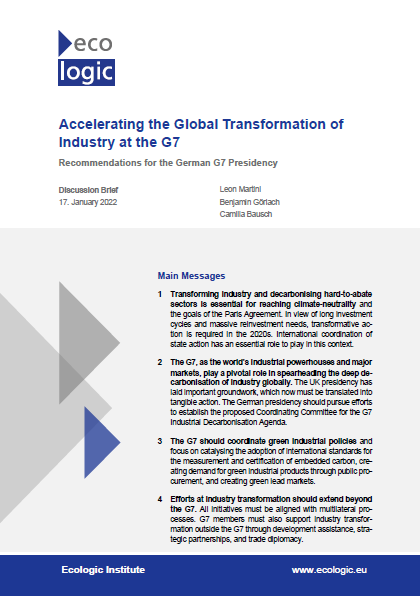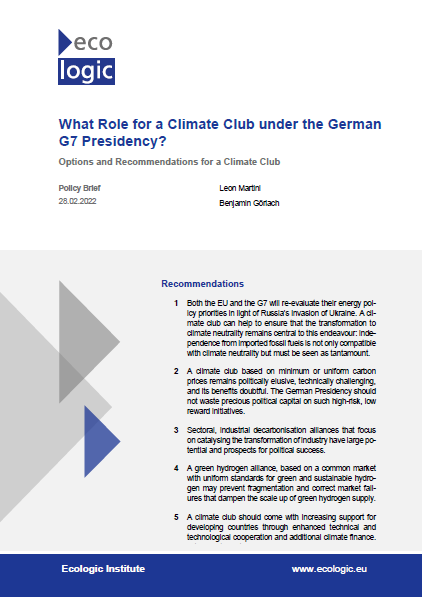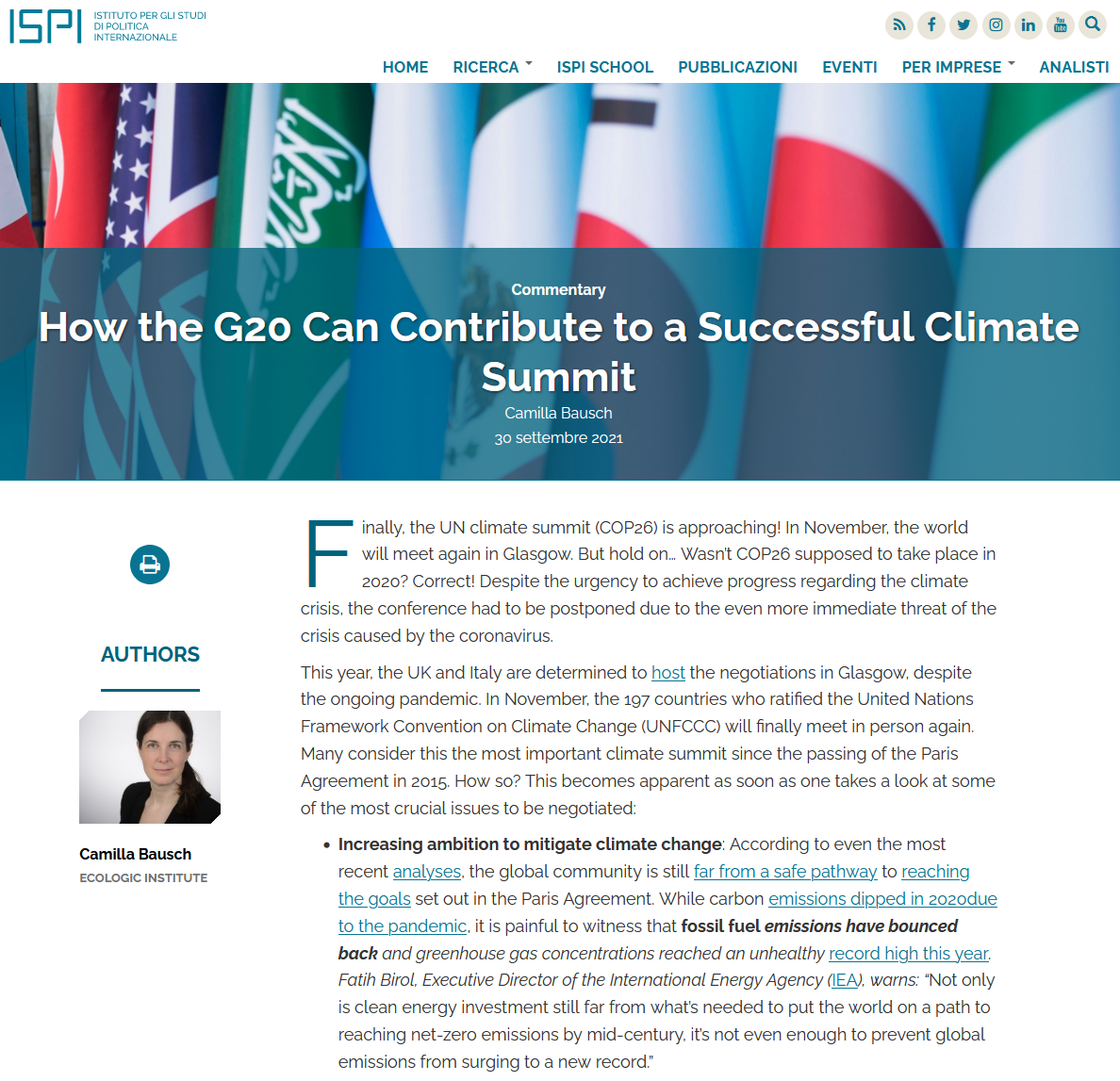Accelerating the Global Transformation of Industry at the G7
Recommendations for the German G7 Presidency
- Publication
- Citation
Martini, Leon, Benjamin Görlach, Camilla Bausch 2022: Accelerating the Global Transformation of Industry at the G7. Ecologic Institute, Berlin.
Transforming and decarbonising industry is essential for reaching climate-neutrality and the goals of the Paris Agreement. A significant part of industrial assets require reinvestment in this decade, while new low-carbon infrastructure needs to be built. All these investments have to be aligned with the goal of climate-neutrality. The G7 can play an important role in accelerating industry decarbonisation, especially with respect to the "hard to abate" industries. Responding to the urgency of the issue and the opportunity not only with respect to reinvestment needs but also politically with respect to this year's German G7 presidency, Ecologic Institute's policy brief maps out a number of opportunities and potential priorities for the G7.
Industry is responsible for approximately 24 % of global CO2 emissions and about 27 % of global total final energy use. There have been only modest declines in emissions in the past years, the majority of which has occurred outside energy-intensive industries. To respond to the urgent need to accelerate this, Leon Martini, Benjamin Görlach, and Dr. Camilla Bausch distilled some key recommendations for the G7:
- The UK presidency has laid important groundwork for cooperation on industry transformation, which now should be translated into tangible action. The German presidency should pursue efforts to establish the proposed Coordinating Committee for the G7 Industrial Decarbonisation Agenda.
- The G7 should focus on catalysing the adoption of international standards for the measurement and certification of embedded carbon. Green industrial policies rely on reliable and transparent information about the life-cycle emissions of traded products. The G7 should improve the uptake of product declarations of embedded emissions, align monitoring, reporting and verification systems, and promote the development of ISO standards for measuring the embedded emissions of complex goods.
- The G7 should create demand for green industrial products through public procurement and the creation of green lead markets. Creating large markets for low-carbon industrial products is essential for scaling up technologies and reducing their cost over time.
- The G7 should address and progress such issues while choosing approaches which help to contain trade disputes over climate measures. Industrial policies are often the source of trade disputes. Discussing and agreeing common standards and conditions of green industrial policies among major economies can help pre-empt or ease tensions.
- Efforts at industry transformation should extend beyond the G7. All actions should be closely aligned with existing multilateral initiatives, like the Clean Energy Ministerial’s Industrial Deep Decarbonization Initiative (IDDI), Mission Innovation, or the Leadership Group for Industry Transition (LeadIT). G7 members should also support industry transformation outside the G7 through development assistance, strategic partnerships, and trade diplomacy.
More information can be found in the policy brief.
The policy brief is part of a project aimed at addressing key issues on the climate policy agenda and how the G7 can contribute to this. This ongoing project – in cooperation with WWF and E3G – will address issues like financing climate partnership, CBAM and the climate club, green hydrogen and loss and damage. You can find more information on this project here.






